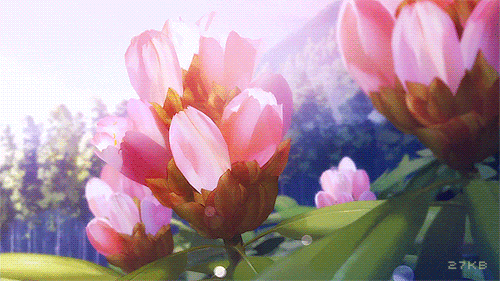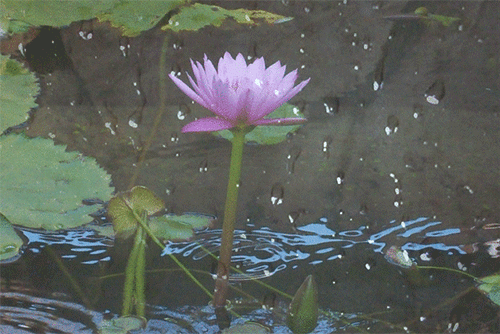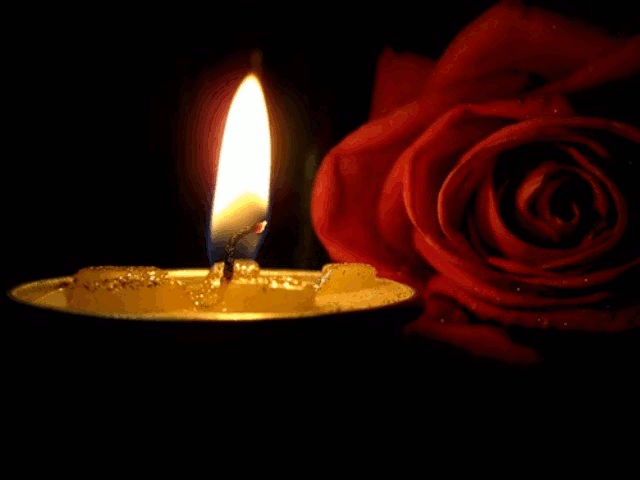-
Comment January 9, 2018
-
Dharma is the truth of the reality
Comment January 8, 2018The dharma is based on honesty, on not having self-deception of any kind. When the dharma says blue, it is blue; when it says red, it is red. Dharma is like saying fire is hot, or the sky is blue: it is speaking the truth. The difference is that dharma is the truth of the reality of the journey toward freedom. Saying that red is red does not particularly liberate you from seeing green or yellow. But when dharma speaks about reality, we see that it is worth stepping out of our little world of habitual patterns, our little nest. In that way, the dharma brings greater vision. ~ Chögyam Trungpa
-
The golden chain of spirituality
Comment January 8, 2018As long as we follow a spiritual approach promising salvation, miracles, liberation, then we are bound by the “golden chain of spirituality.” Such a chain might be beautiful to wear, with its inlaid jewels and intricate carvings, but nevertheless, it imprisons us. People think they can wear the golden chain for decoration without being imprisoned by it, but they are deceiving themselves. As long as one’s approach to spirituality is based upon enriching ego, then it is spiritual materialism, a suicidal process rather than a creative one. ~ Chögyam Trungpa
-
Waves Coming Ashore
Comment January 8, 2018Suffering and mental stress aren’t for sure. They’re inconstant. Keep this point in mind. When these things arise, we know them right now and we let them go. This strength of mind will gradually see more and more. When it’s grown more resilient, it can suppress defilements extremely fast. As time passes, whatever arises right here disbands right here, like waves on the sea coming ashore. As soon as they reach the shore they simply dissolve. A new wave comes and it dissolves too. It can’t go beyond the shore. Inconstancy, stress, and not-self are the shore of the sea. As for the sense objects that come passing in, that’s all there is to them. ~Ajahn Chah
-
Superficial Dharma practices
Comment January 7, 2018 -
Cut off from the present moment
Comment January 7, 2018Our society is very result-oriented, that’s why we are so competitive. That’s why we are always stressed, because we are always looking at something in the distance. If you are always looking at the top of the mountain you are climbing, you cannot be aware of the grass and flowers growing at your feet. We are always looking ahead, aren’t we? And then the actual thing, the actual living, passes us by. We are locked inside our brains, cut off from the present moment, always centered on something beyond our reach. We are imagining this mirage of happiness, satisfaction and fulfillment which will magically appear once this and this and this happens. But what’s happening right now is “it” and it’s the only “it” we have. The rest is just fabrication. ~Tenzin Palmo
-
An act of compassion always brings about transformation
Comment January 7, 2018An act of compassion always brings about transformation. If not right now, it will happen in the future. The important thing is you don’t react with anger. You react with compassion, and sooner or later you see the transformation in the other person. You keep being compassionate, you keep being patient. ~Thich Nhat Hanh
-
The Story of Thera Channa
Comment January 7, 2018Verse 78: One should not associate with bad friends, nor with the vile. One should associate with good friends, and with those who are noble.
1. namayanti: to bend, to incline a person’s heart or will. In the case of fletchers, to make the arrows straight; in the case of carpenters, to make the timber into things that people want, by cutting, sawing and planing.
The Story of Thera Channa
While residing at the Jetavana monastery, the Buddha uttered Verse (78) of this book, with reference to Thera Channa.
Channa was the attendant who accompanied Prince Siddhattha when he renounced the world and left the palace on horseback. When the prince attained Buddhahood, Channa also became a bhikkhu. As a bhikkhu, he was very arrogant and overbearing because of his close connection to the Buddha. Channa used to say, “I came along with my Master when he left the palace for the forest. At that time, I was the only companion of my Master and there was no one else. But now, Sariputta and Moggallana are saying, ‘we are the Chief Disciples,’ and are strutting about the place.”
When the Buddha sent for him and admonished him for his behaviour, he kept silent but continued to abuse and taunt the two Chief Disciples. Thus the Buddha sent for him and admonished him three times; still, he did not change. And again, the Buddha sent for Channa and said, “Channa, these two noble bhikkhus are good friends to you; you should associate with them and be on good terms with them.”
Then the Buddha spoke in verse as follows:
Verse 78: One should not associate with bad friends, nor with the vile. One should associate with good friends, and with those who are noble.
In spite of repeated admonitions and advice given by the Buddha, Channa did as he pleased and continued to scold and abuse the bhikkhus. The Buddha, knowing this, said that Channa would not change during the Buddha’s lifetime but after his demise (parinibbana) Channa would surely change. On the eve of his parinibbana, the Buddha called Thera Ananda to his bedside and instructed him to impose the Brahma-punishment (Brahmadanda) to Channa; i.e., for the bhikkhus to simply ignore him and to have nothing to do with him.
After the parinibbana of the Buddha, Channa, learning about the punishment from Thera Ananda, felt a deep and bitter remorse for having done wrong and he fainted three times. Then, he owned up his guilt to the bhikkhus and asked for pardon. From that moment, he changed his ways and outlook. He also obeyed their instructions in his meditation practice and soon attained arahatship.
Dhammapada Verse 78
Channatthera VatthuNa bhaje papake mitte
na bhaje purisadhame
bhajetha mitte kalyane
bhajetha purisuttame.Source: Tipitaka
-
Forgiveness will not be possible until compassion is born in our heart
Comment January 7, 2018Forgiveness will not be possible until compassion is born in our heart. Even if you want to forgive, you cannot forgive. In order to be compassionate, you have to understand why the other person has done that to you and your people. You have to see that they are victims of their own confusion, their own worldview, their own grieving, their own discrimination, their own lack of understanding and compassion. ~Thich Nhat Hanh
-
Learn from it and let it go
Comment December 23, 2017Learn from it and let it go.
The future is not even here yet. Plan for it, but do not waste your time worrying about it.
Worrying is worthless.
When you stop ruminating about what has already happened, when you stop worrying about what might never happen, then you will be in the present moment.
Then you will begin to experience joy in life.― Thich Nhat Hanh


















